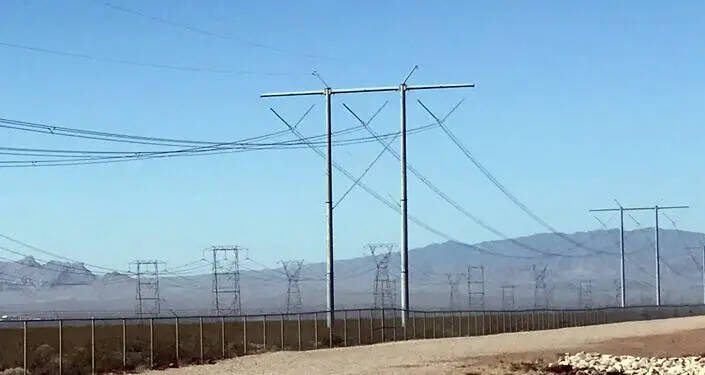City eyes increase in utility rates
It turns out that, when it comes to energy, everything really is connected to everything else. That interconnection may have been the root message presented to a joint workshop that included both the Utility Advisory Committee and the City Council April 26.
Following a recommendation from the American Public Power Association —a group established in 1940 to represent the shared interests of community-owned electric utilities such as Boulder City—a new rate study should be undertaken every three to five years or if there have been major changes to a list of items including adding new generation resources and large changes in the cost of generated electricity. The last rate study for the city was done in 2019.
The study recommended two actions that would most directly affect businesses and residents in the city:
1) Increase rates for both electric and water in a way that will impact larger users more than smaller users.
2) Decouple the overall rate to account for cost of electricity or water from the cost to the city for delivering those utilities.
The city electric utility gets power from a number of sources including the Townsite solar facility, Hoover Dam, the network of federally-operated hydro-electric facilities known as SLCAIP that includes Glen Canyon Dam and eight smaller hydro-electric facilities in the Upper Colorado River Basin and from private suppliers who generate electricity through the burning of natural gas to run steam turbines. Only the solar site has been stable in terms of both available output and cost.
While the city has contracts with both entities that ensure rates over the contract period, supply from the hydro-electric sources has lessened to some degree as the water levels in both reservoirs have fallen to historic lows.
“We are getting significantly less hydro-electric power due to the drop in lake levels,” said Utilities Director Joe Stubitz. “If you compare the average generation during the pre-drought period of 1991-1999 to the average generated during the period of 2000-2022, we have lost about 15% of Hoover energy and 23% of SLCAIP generation.”
Those drops in output means the city-owned utility has to lean more heavily on natural gas sources, a large portion of which is purchased on the open market. And, as gas supplies in the U.S. have been somewhat constrained due at least in part to greater gas needs in Europe as a result of the war between Russia and Ukraine, the cost of natural gas has gone up substantially.
This will come as no surprise to residents and business owners who have already seen their gas costs increase substantially. (While the city owns the local electric, water and wastewater utilities, it does not own the gas utility.) Because of the increase in the cost of natural gas, the rate study revealed —and Stubitz confirmed —that the cost to the city for electricity from gas sources has roughly doubled in just the past two years.
The new rate structure being recommended would result in some small users actually seeing a minor drop in their bill with the average small user seeing a 1% increase in fiscal year 2024, medium users seeing about a 2% increase and larger users seeing increases of 4% and higher as the usage goes up. Of note is the fact that the plan calls for tapping some existing city funding to soften the impact of rate increases in the short-run. Without that part of the equation, rates would have to rise substantially higher than planned in order to cover actual costs.
“The costs of goods and services have increased in most sectors, and energy prices have followed these trends,” said Stubitz. “This study will not only help us align with current market conditions, but also prepare for the future. The proposed changes incentivize conservation by keeping water and energy rates as low as possible for the lowest usage tier of customers.”
The other recommendation from the consultant group Raftelis is to decouple the cost of energy and water from the cost of delivering those utilities to customers. The idea is that this both increases transparency when people see their monthly bills and it allows the city-owned utilities to respond more quickly when the costs of electricity and water change dramatically.
The April 26 meeting was only scheduled to receive the study by Raftelis and to allow members of the council and the committee to ask questions. The committee was scheduled for another meeting to discuss the study on May 3 at 1 p.m. (Due to press time constraints, coverage of the May 3 meeting is slated to appear in the May 11 issue of the Boulder City Review.)
Contact reporter Bill Evans at wevans@bouldercityreview.com or at 702-586-9401.















